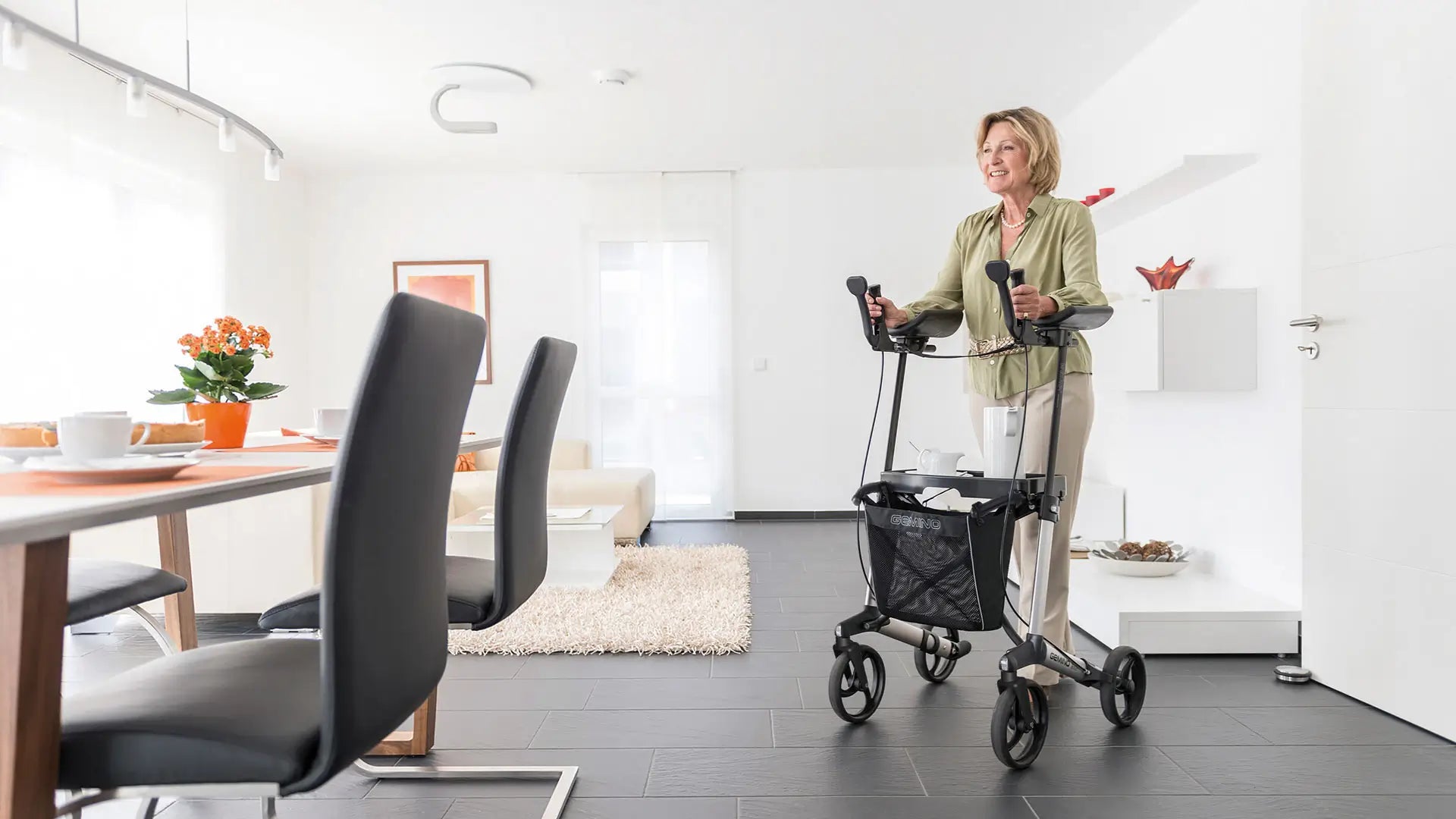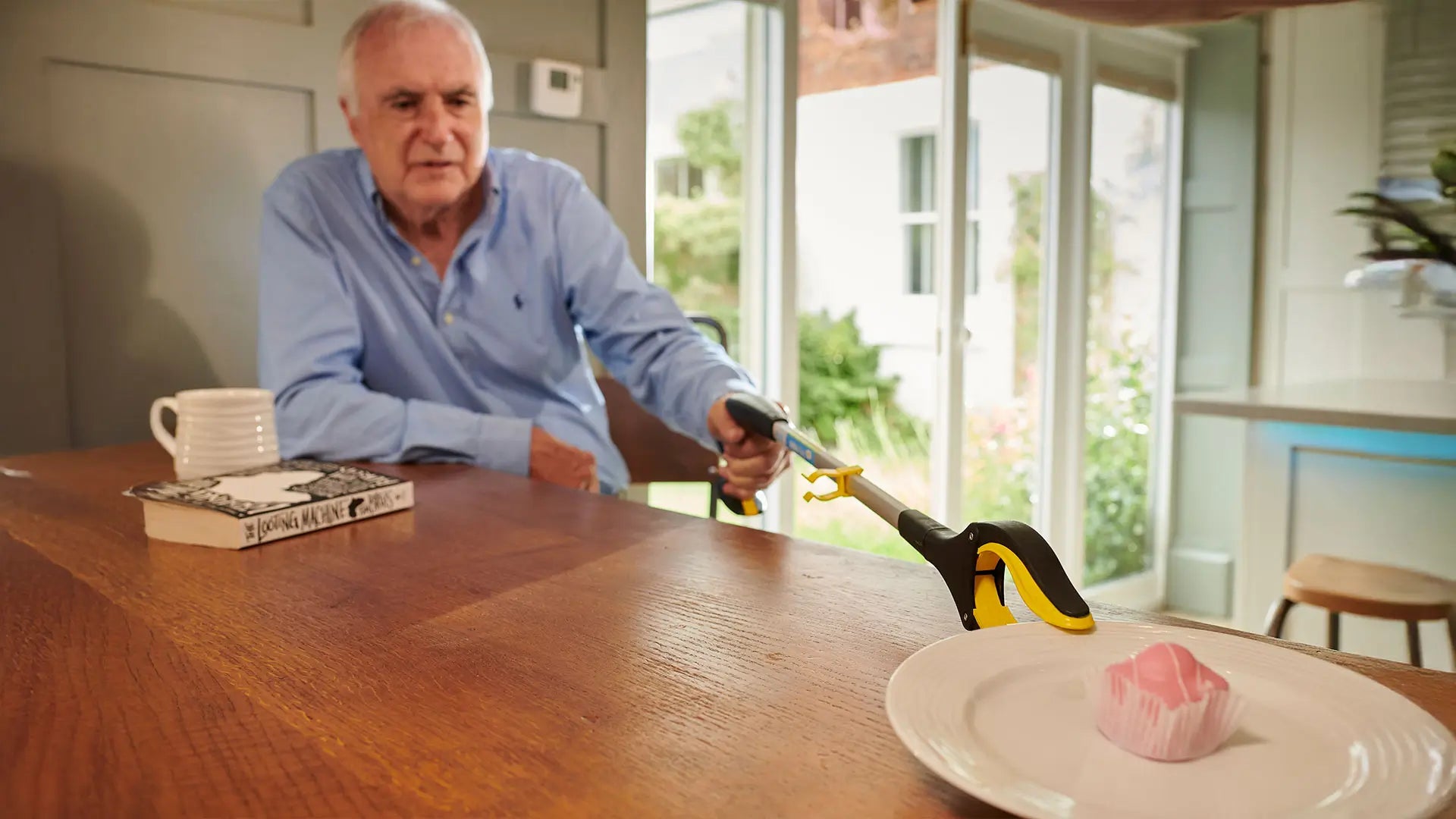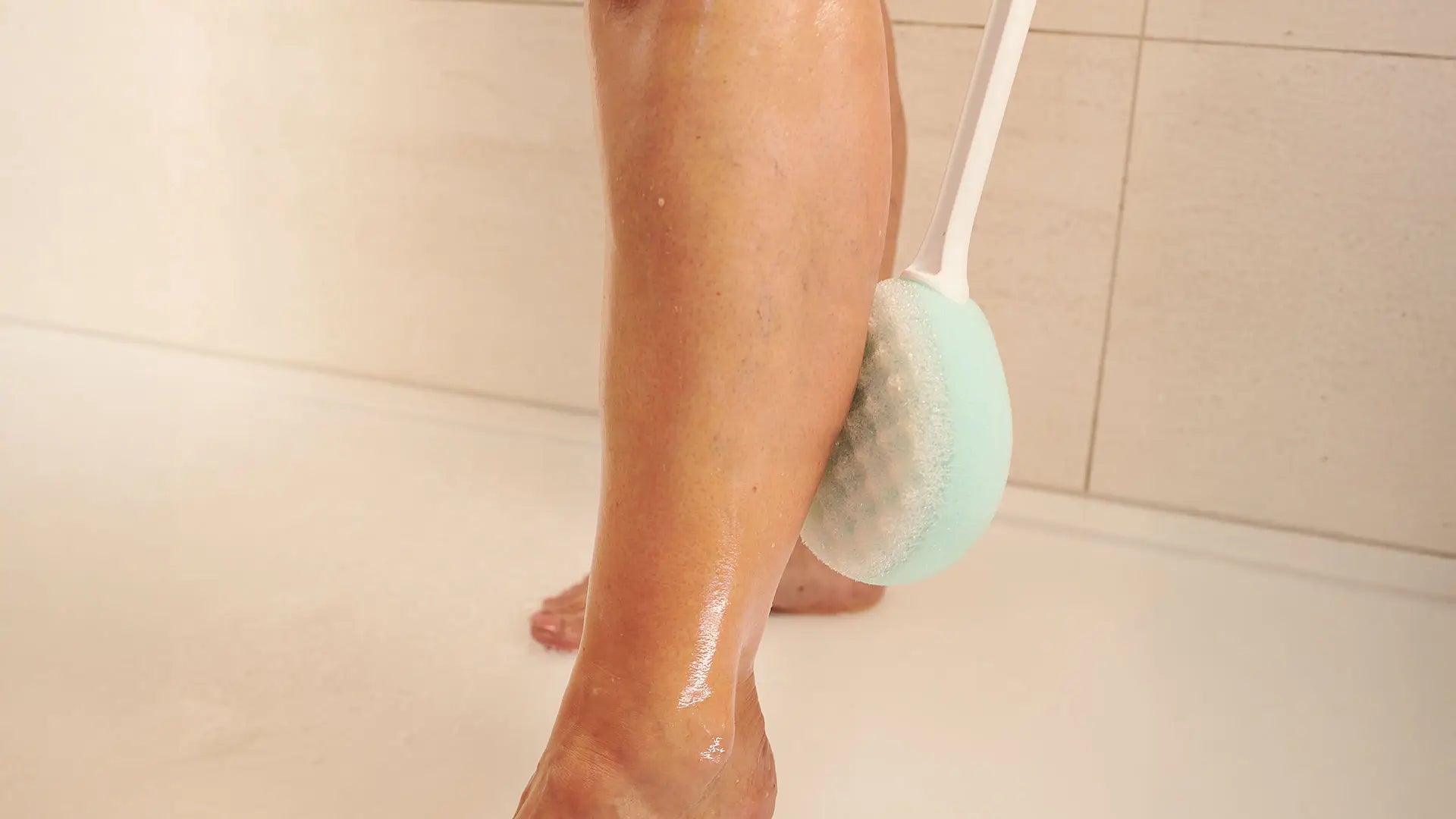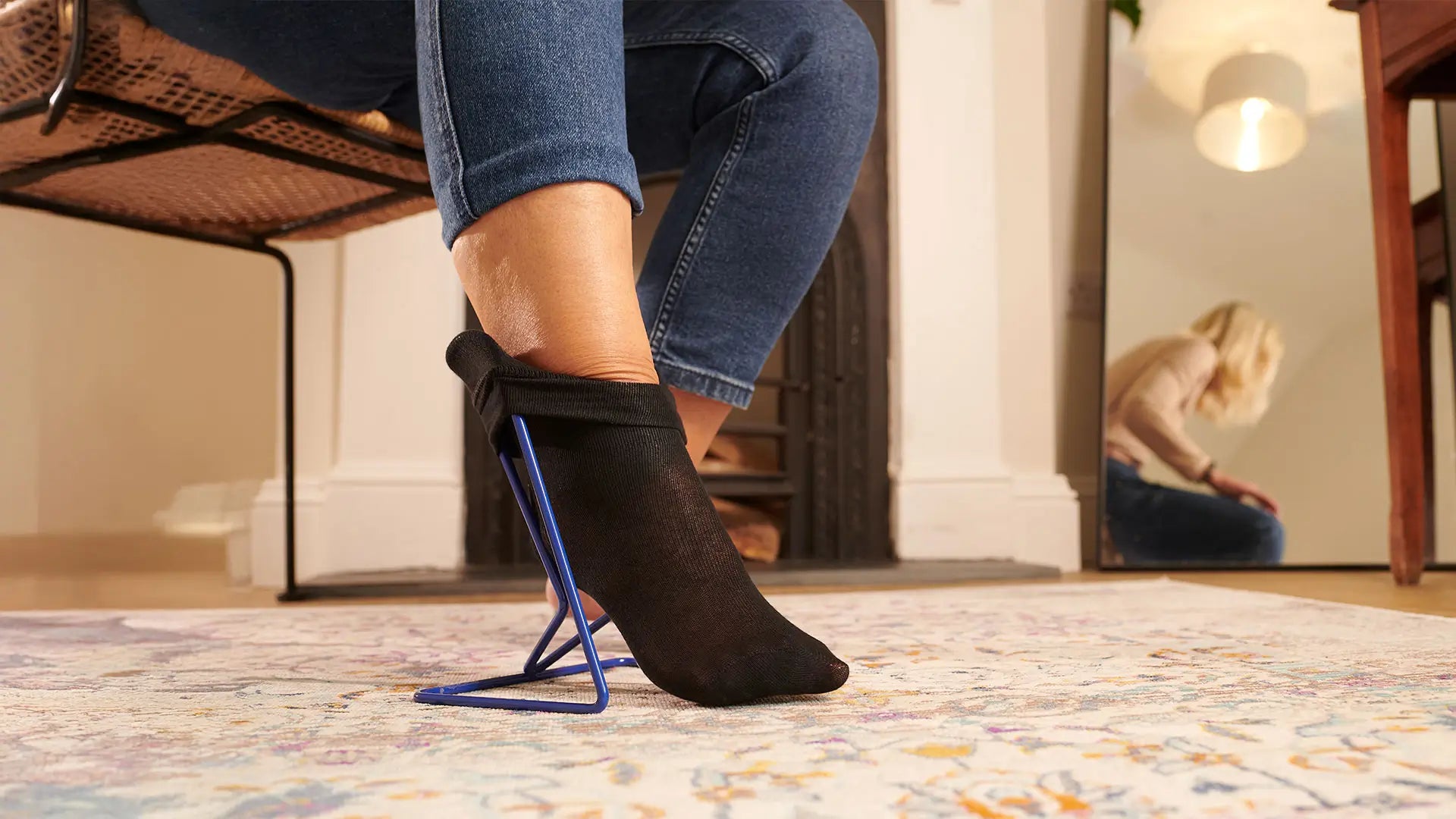As we age, our bodies change, and moving around isn’t as easy as it once was. The best way to stay mobile is to not stop in the first place. We can’t always control what happens to our bodies – genetics, long-term health conditions or trauma can change our ability to stay mobile. It’s really important that you don’t give up and that you keep looking for ways that work best for you, to keep you as independent for as long as possible.
There are several common factors that can lead to reduced mobility: existing medical conditions, illness or injury, older age, low physical activity, obesity, impaired strength and balance. Less obvious factors can include depression, memory problems, recent hospitalisation, or fear of falling.
Let’s first work out how mobile you already are before making a plan – ask yourself these two questions:
- For health or physical reasons, do you have difficulty climbing 10 steps or walking outside for a quarter of a mile?
- Because of underlying health or physical reasons, have you modified the way you climb 10 steps or walk outside for a quarter of a mile?
If you answered yes, and climbing stairs or walking any distance is hard for you, don’t stop – but accept that this is difficult. Start thinking about what can be done to avoid further restrictions to your daily movement and how to allow yourself, or the person you are caring for, more time to adjust to surroundings and age safely in place.
Balance can become an issue as we age. We just aren’t as steady on our feet as we once were, which makes falling more likely. Maintaining an active lifestyle and a healthy weight can help. Strength training is also a good way to improve your balance.
If exercise has been part of your daily routine since you were young, make sure to keep walking, running, swimming – whatever it is that keeps you moving. It’s not just about maintaining your health, it also helps ensure your independence for much longer.
Some falls may result in bumps or bruises, others in broken bones. Either way, it’s not something you want to experience. Certain conditions, like diabetes, can make you more prone to falls. Serious health events, such as a stroke, can also make falling more likely. But sometimes, staying on your feet may be as simple as understanding the side effects of the medications you take. Some drugs can cause dizziness on their own or when combined with others. Be sure to let your doctor know if you have fallen recently, feel dizzy often, or are unsteady on your feet.
The good news
There are some simple ways to protect yourself from falling at home:
- Make sure you have plenty of light in your house so you can see where you are going.
- Keep your floors clutter-free and either secure or remove loose rugs.
- A healthy, balanced diet with plenty of vitamin D and calcium will help keep your bones strong.
- Get your eyes checked annually. A change in your prescription can affect your vision and increase the risk of falls.
If you need something to help you get around, you’re not alone. Over two million households in the UK have some form of equipment adaptation, and nearly one in four people over 65 regularly use a mobility aid such as a walking stick, walker, rollator, wheelchair or scooter. It’s not uncommon for someone to use more than one device.
What are some quality everyday devices for staying mobile?
Walking stick or cane
A walking stick can give you extra support and help with your balance. It can give you the confidence to keep moving and make walking less painful. There are many different types, so be sure to choose one that is the correct height for you. Do you want a left-handed or right-handed stick? Would a seat be useful so you can rest? We recommend you contact your local GP surgery and talk to your doctor or nurse.
Walking frame, zimmer frame or rollator
These provide more support than a walking stick and can be used around the home or out and about. You can borrow walking frames from the NHS – speak to your GP, local hospital or healthcare professional. Visit your local mobility dealer, who can also give specialist advice on rollators and let you try before you buy.
Wheelchair
If you struggle to get about, are recovering from an injury, or are disabled, you can use a wheelchair. For short-term use after an injury, you may be provided with one free by your local hospital. Local organisations like the Red Cross and Motability schemes also offer hire. When looking to purchase, consider whether you are going to push yourself or have someone else assist you, how often and where you will need to use it – indoor, outdoor or both – and the costs involved in maintenance and repair.
Scooter
A mobility scooter can be useful if you struggle to walk and need to travel longer distances. These are not available on the NHS. The Motability scheme can help if you want to hire or buy a scooter, allowing some people to use their benefits to pay for one. To find out more, visit www.motability.co.uk.
Stair lift
If climbing or descending stairs has become difficult, there are a number of options to make life easier. The least popular choice is to move to single-floor accommodation so stairs are no longer part of daily living. A stair lift can be a practical, cost-effective, long-term option. Choosing a stair lift should be done carefully as there is a lot to consider: what will fit your staircase, what type will suit your needs, and what your budget is. It is a good idea to speak to your GP or healthcare professional as well as your family. Friends may also be able to recommend based on their experiences.
What other adaptive aids can help you around the home?
There are many gadgets that can help you stay in your home for as long as possible. Grab bars are fairly easy to install and you can put up as many as you like. They are usually fitted in the bathroom, near the toilet or the bath. Handles can be fixed permanently to the wall, or you can choose a type with suction cups, so you can take them with you when you travel. Not sure which grab rail is right for you? Here are two handy guides:
The bath can be an area of concern – getting in as well as getting out – and being able to change position while you wash. Bath boards or shower boards allow you to sit over the bath while you wash. We’ve also introduced a range of folding shower seats that neatly fold away if someone else uses the bathroom too.
Keep active, keep moving
Maintaining your ability to move around freely or with little help doesn’t just help keep your independence – it’s good for your mental and emotional health too. Not being able to go shopping or even move around your home can take its toll. Restricted mobility can easily lead to depression and isolation because we don’t like to be dependent on others for help. The truth is, there are people who love you and are willing to help you if you ask. Please don’t be afraid or too proud to get a device if you need one. It could be the difference between staying in the home you love for longer and having to move sooner than you’d like.






Share:
Off On Your Travels? Pack your travel kit!
Do you need to wear Compression stockings?